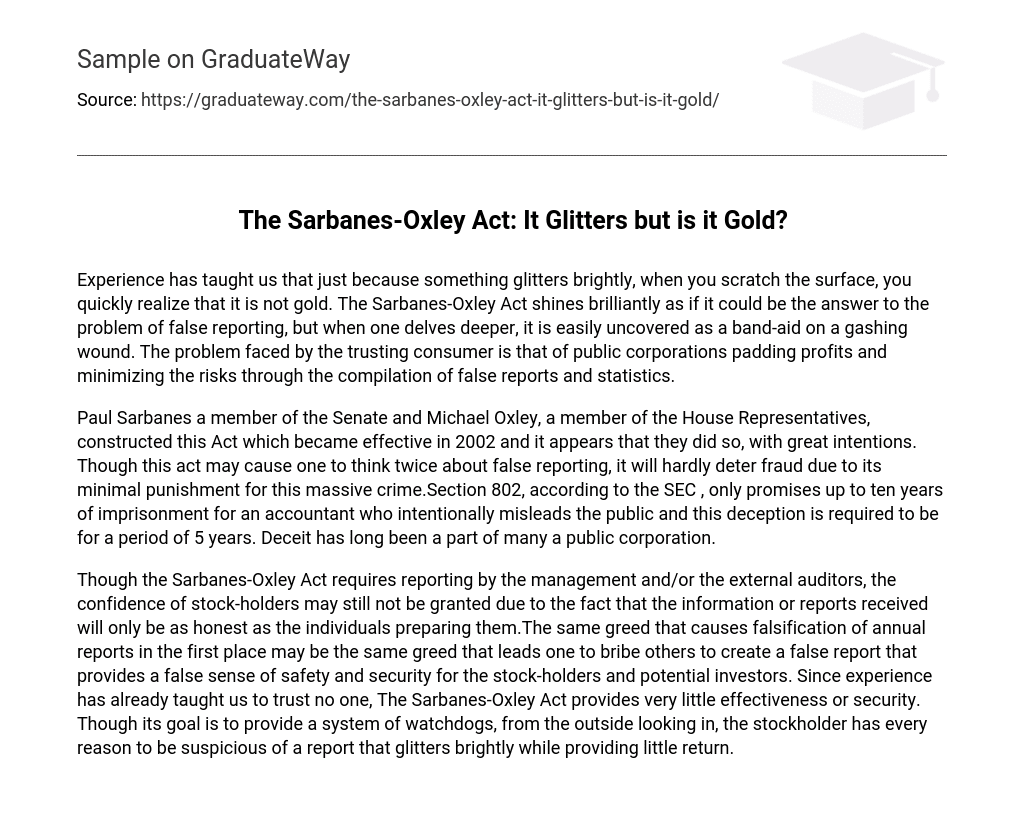Experience has taught us that just because something glitters brightly, when you scratch the surface, you quickly realize that it is not gold. The Sarbanes-Oxley Act shines brilliantly as if it could be the answer to the problem of false reporting, but when one delves deeper, it is easily uncovered as a band-aid on a gashing wound. The problem faced by the trusting consumer is that of public corporations padding profits and minimizing the risks through the compilation of false reports and statistics.
Paul Sarbanes a member of the Senate and Michael Oxley, a member of the House Representatives, constructed this Act which became effective in 2002 and it appears that they did so, with great intentions. Though this act may cause one to think twice about false reporting, it will hardly deter fraud due to its minimal punishment for this massive crime.Section 802, according to the SEC , only promises up to ten years of imprisonment for an accountant who intentionally misleads the public and this deception is required to be for a period of 5 years. Deceit has long been a part of many a public corporation.
Though the Sarbanes-Oxley Act requires reporting by the management and/or the external auditors, the confidence of stock-holders may still not be granted due to the fact that the information or reports received will only be as honest as the individuals preparing them.The same greed that causes falsification of annual reports in the first place may be the same greed that leads one to bribe others to create a false report that provides a false sense of safety and security for the stock-holders and potential investors. Since experience has already taught us to trust no one, The Sarbanes-Oxley Act provides very little effectiveness or security. Though its goal is to provide a system of watchdogs, from the outside looking in, the stockholder has every reason to be suspicious of a report that glitters brightly while providing little return.





